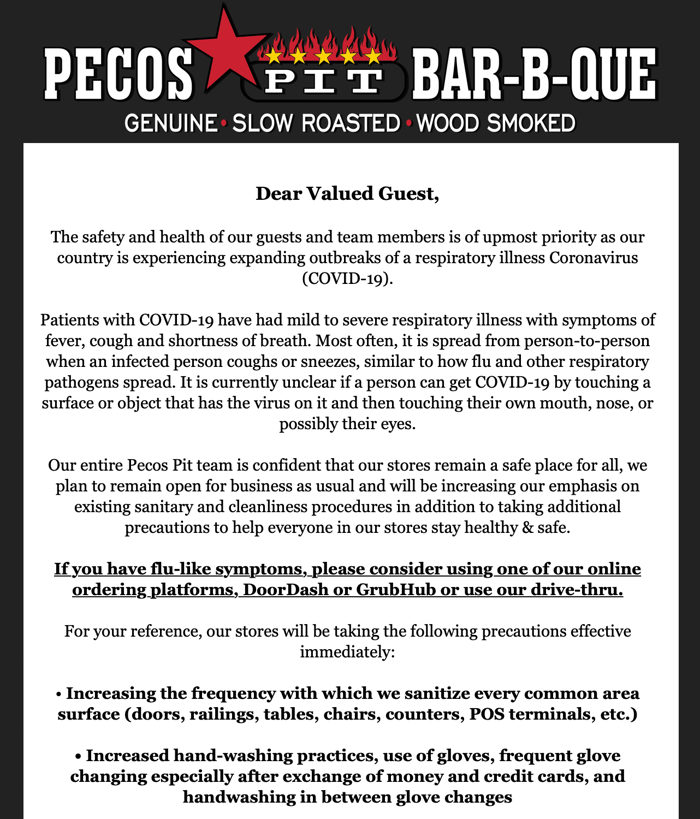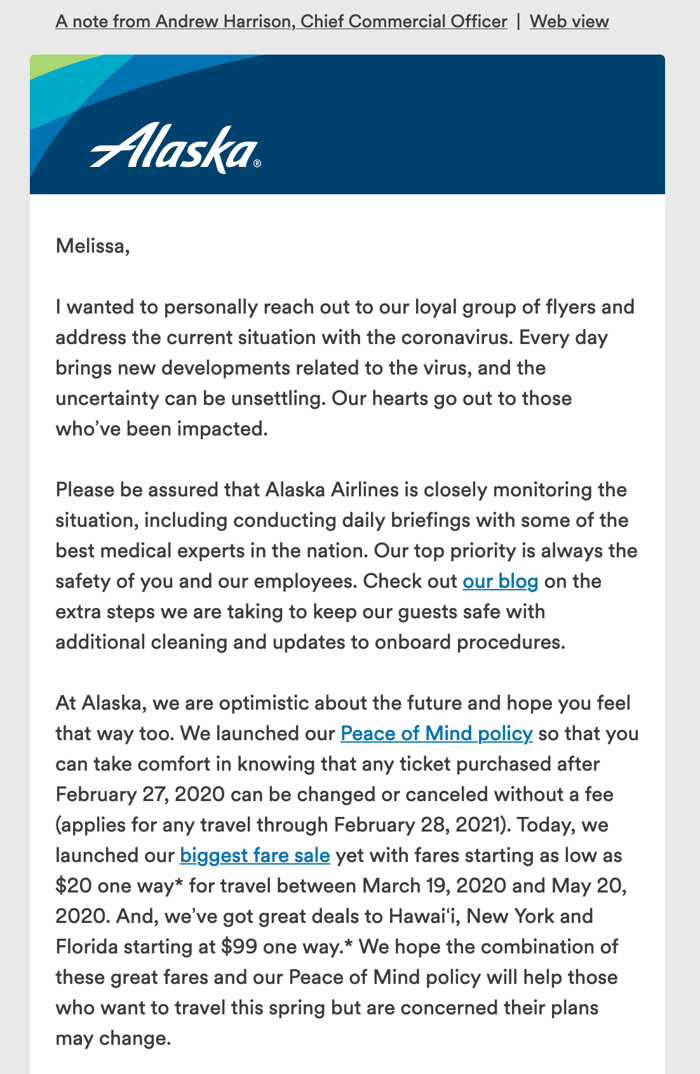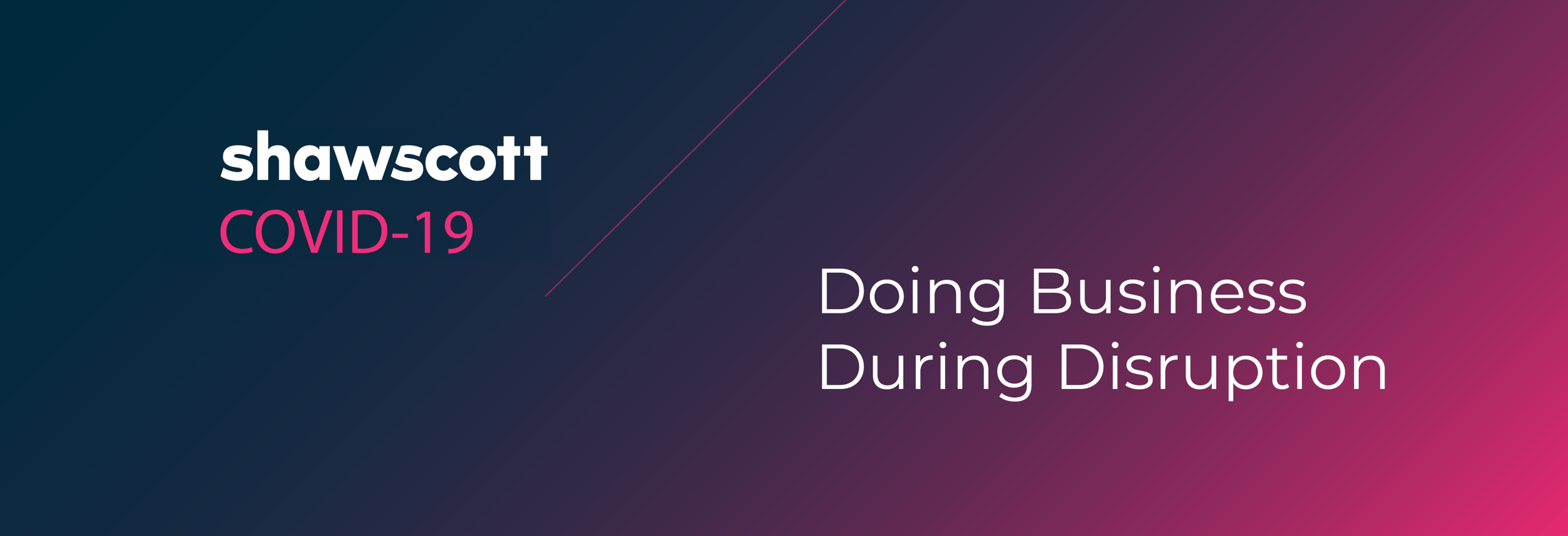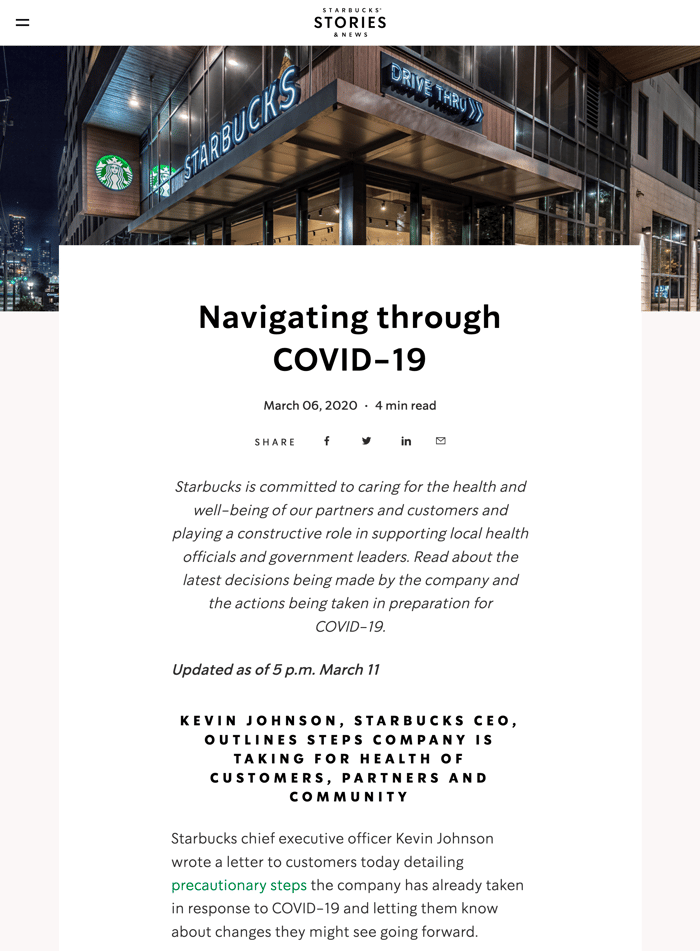It’s not easy being a marketer these days, especially if you’re in travel, hospitality, retail, or service sectors. Just when there seemed to be hope for 2020, the impact of the Coronavirus is only just starting to be felt and could last for months—even well after the current situation has passed.
As they say, the ship has to keep sailing, but how do you navigate a world where your customers might be impacted personally, whether from a health or financial perspective? How do you address the reality of the situation while maintaining forward momentum for your business? How do you drive revenue so your business can keep the lights on and make sure your staff is safe and productive?
There are no easy answers and they vary depending on your business and the role you play in your customers’ lives. The first question to ask is whether your products or services could help with the current situation right now? If so, how can your customers access your products and services? Are they taking advantage of your online shopping options? Are they aware of other local resources that may carry your products or offer your services? Is there an opportunity to educate and highlight what you’re doing to help outside of your products and services?
More than likely for the majority of marketers, your products and solutions are not going to directly help your customers with regards to the impact of Coronavirus, so we need to not only drive value somehow for our customers, but for our employees as well. This means making the best out of the current circumstances, so you’re well positioned for as an expedient recovery as possible.
First of all, it goes without saying that being authentic is almost always the way to go. Whatever you do, do not mix your messages. You may be increasingly desperate to move product, but do not explicitly tie your sales or incentives in any marketing messages with Coronavirus, unless maybe you’re in the health and medical industry and offer solutions directly related to it. Otherwise, this is simply an association you do not want to make. Conversely, don’t pretend things are normal when they are not as almost everyone is going to be impacted one way or another.
A great example is from Starbucks. They posted an open letter on their website voicing their concerns, considerations, and measures they are taking to help tackle the spread of Coronavirus. It’s proactive, honest, and reassuring—setting exactly the right tone. Though it never says it directly, the intention is clear: we’re open and safe for business.
Secondly, you might have to suffer short-term pain for long-term gain. What this means is your focus might have to be brand building and lead nurturing so you can drive sales down the road—especially if your supply chain is impacted—so you can recover from the likely sales shortfall happening now. Since people are likely staying close to home, anything you can offer that makes being home or staying local somehow better will likely be effective.
This applies whether you’re a big or small company. A local restaurant chain in Seattle sent this email out to their customers and it perfectly illustrates how to affirm you’re open for business, what you’re doing to ensure the safety of your customers, employees, and partners, while outlining how to enjoy their food from home.
Customer Email
As another example, if you’re in the travel industry and you know you have customers whose trips have cancelled, maybe offer ideas for “staycations” for leisure travelers or “how to meet virtually” for business travelers. Of course, updating on what to expect next, how to act upon any changes, or plan for the future will always be appreciated as timely and helpful. Please note the difference between being informative versus selling. It can be a thin line, but one you have to get right.
Alaska Airlines did a great job of this with their recent email by using empathy to reassure their customers on multiple levels. First, they expressed their concern for anyone impacted by the Coronavirus. Next, they shared the measures they are taking to help ensure it is safe to travel with them. Finally, they highlighted their new “Peace of Mind” policy, which enables customers to change or cancel their plans penalty-free followed by a new fare sale. Not only does this provide a positive experience in an otherwise difficult situation, but it will also likely encourage people to book new travel knowing this option is there.
Customer Email
It’s not business as usual, so your usual revenue strategies are not likely going to be as effective right now. Many of your customers are likely worried and distracted, but also thinking about what comes next and better days. Therefore, it might be a good time to highlight the benefits of shopping online or showcasing the perks of your customer loyalty program. How your brand can help your customers improve their lives are likely the messages people want to hear.
This time represents an opportunity to assess where your marketing programs are and what you can do to take advantage of this time to make them even better. This could mean getting a head start on holiday next year, mapping out a plan to move from manual campaigns to automated, or possibly auditing what’s working or not in order to build out a roadmap for summer and beyond.
Maybe you can finally do something with all that data you’re collecting and improve not only the customer experience, but your relationship with each of your customers. If your customers feel that you genuinely care about them and care about thoughtfully improving their lives, this will set the stage for both your recovery and long-term benefit.
We’d love to hear your thoughts and suggestions as well. Marketers don’t have it easy, well, really ever, so let’s try to help each other through our collective challenges.






